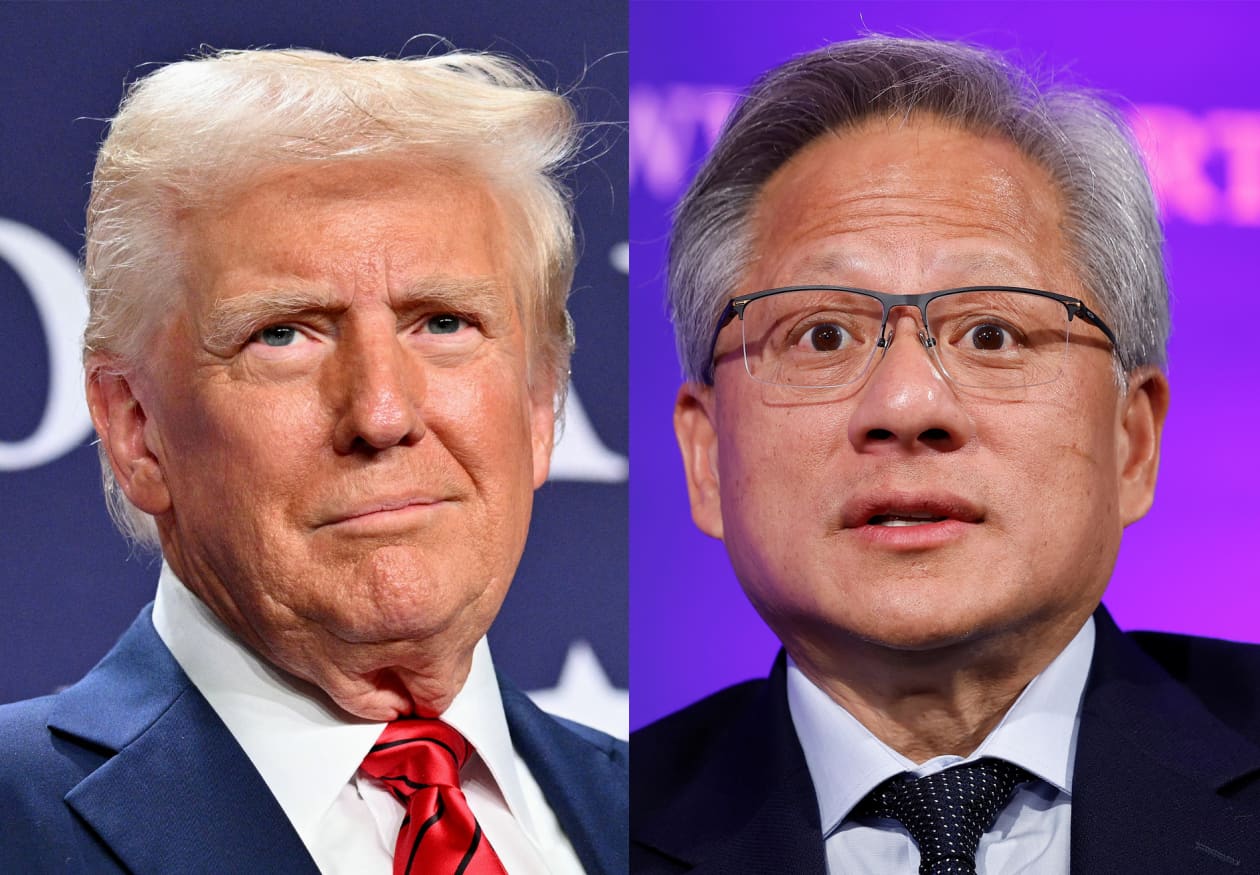President Donald Trump’s latest financial disclosures reveal substantial personal stakes in Nvidia and Apple, two of the most influential companies in the global technology sector.
These revelations come at a time when Trump is actively shaping U.S tech policy prompting a growing debate over whether the Trump Nvidia Apple investments create an unavoidable conflict of interest.
According to official filings, Trump’s holdings include millions of dollars’ worth of shares in Nvidia and Apple. These assets are held through a family run trust rather than a blind trust, meaning the president could be aware of how his policies might impact the companies’ stock performance.
Reports also indicate that Trump owns shares in Microsoft, Meta, Amazon, and other tech giants giving him a significant footprint in an industry he is directly regulating.
Nvidia’s Trade Deal Breakthrough
Nvidia has been at the center of U.S China technology negotiations. In a landmark agreement, Trump’s administration allowed Nvidia and AMD to continue selling to China in exchange for a 15% revenue share from their China chip sales paid directly to the U.S government.
The news boosted Nvidia’s share price, benefiting all shareholders including Trump. Critics argue this arrangement is unprecedented and adds to the ethical concerns surrounding the Trump Nvidia Apple investments.
Apple, another major pillar of Trump’s portfolio, received exemptions from steep semiconductor tariffs after committing to expand U.S manufacturing and pledging hundreds of billions in domestic investments over the next four years.
The decision shielded Apple’s supply chain from major disruptions and strengthened investor confidence. As a result, Apple’s market value climbed again directly benefiting the president’s investments.
Ethics experts, economists, and political analysts have weighed in on the situation. Ethics specialists stress that without a blind trust, any policy benefiting a company the president invests in raises potential conflicts.
Market analysts warn that corporate deals negotiated by the president could distort fair competition in the tech sector. Political commentators fear that such arrangements set a precedent for future leaders to intertwine personal wealth with national policy.
Industry Insider Perspectives (Imagined)
Although no employee has publicly spoken on the matter, here’s how it might feel inside these companies. When the White House announced the Nvidia deal, our sales projections soared overnight. But it was hard to ignore the political undertones it felt like business and politics were walking hand in hand a hypothetical Nvidia engineer might say.
Apple’s U.S expansion got greenlit quickly, and while that boosted morale, we all knew there were bigger forces at play forces tied to the president’s own financial interests, another insider might reflect.
These perspectives illustrate how deeply policy decisions tied to Trump Nvidia Apple investments could influence corporate culture.
Policy vs. Profit
The intersection of presidential decision making and personal investments creates a risk of biased governance. With millions at stake, questions about whether policies serve the public or private gain are inevitable.
When markets believe certain companies have a political advantage, smaller competitors face an uneven playing field, and investors may shift capital based on perceived favoritism.
If allowed to continue unchecked, such practices could normalize a governance style where personal wealth and national strategy are directly linked eroding public trust.
Lawmakers are proposing new legislation to ban top government officials from holding or trading individual stocks during their terms in office. This reform could help prevent situations like the Trump Nvidia Apple investments from raising ethical and legal concerns in the future.
The debate over the Trump Nvidia Apple investments is more than just a political talking point it’s a real time test of America’s standards for ethical governance.
From Nvidia’s China trade arrangement to Apple’s tariff exemptions, these examples show how closely personal financial interests can align with national policy decisions.
Supporters argue these moves strengthen U.S industry, while critics warn they erode transparency and public trust. Ultimately, the controversy underscores the urgent need for stronger conflict of interest safeguards to ensure that public service remains separate from private profit.
